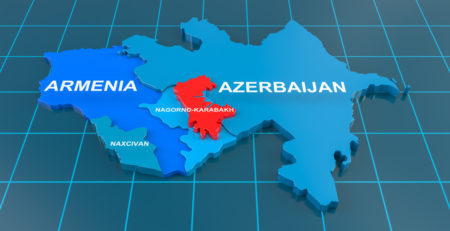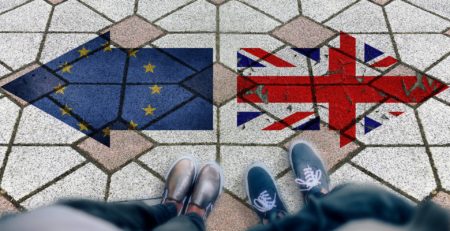Splendid Isolation
A report commissioned by the Conservative government in the early 1960’s on the future of Britain concluded that by 1970 the world would be dominated by three large economic blocks namely, America, USSR and Europe and if Britain remained outside of Europe it would remain left behind and become isolated on the world stage. Ironically many of the young voters in the 1973 referendum that carried the vote to enter the EEC were one and the same that voted to Leave the EU in the 2016 referendum. So now that the UK will leave the EU, albeit as yet we do not know under what circumstances, does the UK risk splendid isolation?. ª
We have to remember that the 2016 referendum result essentially reflected the desire of UK citizens to reinstate sovereignty over their borders although admittedly it is more complex than that as the majority in Northern Ireland and Scotland voted to remain in the EU. So immigration became the principal theme and little else was openly discussed and debated in the lead up to the referendum to allow a proper balanced assessment by the people.
As the real implications of EU exit have become clear over the past three years what can we surmise will be the effects of leaving? It comes down to a trade off between perceived enhanced sovereignty, the expected economic fall out and the changing social fabric of the nation state.
Political – Sovereignty
There is no question that the motivation for the 2016 referendum was purely political, to appease the Euro sceptics in the Conservative Party, as there had been no groundswell of public pressure to either stay or leave the EU. In hindsight it is somewhat disingenuous for those Brexiteers to twist the whole Brexit conundrum as being Parliament v People when the people never asked for the vote in the first place. However, the lies and falsehoods surrounding Brexit that we have all become accustomed to, have coincided with populist agendas across many countries so it remains to be seen if this is the beginning of a new order or a temporary phenomenon of eccentric leadership.
On the question of sovereignty which is at the core of the referendum vote there is clear visibility that the UK will regain control over inward immigrant flows as EU citizens will no longer have a right to reside in the UK (except arrangements for pre-existing EU residents). Furthermore, legal sovereignty will return and financial contributions to the EU will cease. However, what will this new found sovereignty look like?. Firstly, the likely long term break-up of the Union with Scotland, endeavouring to go it alone and Northern Ireland, eventually succumbing to a united Ireland will dilute the concept of UK sovereignty and severely diminish UK standing in any residual transatlantic alliance. Secondly, by going it alone the UK becomes a stand alone mid sized country dwarfed in a world dominated by large economic groups (US, China, EU, to be joined in time by India) and second tier large populous emerging nations such as Indonesia, Brazil, Mexico and Turkey therefore, its most likely default position will be alignment with the US in order to maintain access to the Global order. Any such North Atlantic pact in which the UK is the junior partner will compromise UK sovereignty through forced adoption of US style deregulation, deterioration of standards for protection of workers and consumers and US interference in UK economic policy. Thirdly, negotiating new trade deals will be less about tariffs and quotas and more about environmental, safety and sanitary rules of different jurisdictions which means ceding a degree of sovereign control.
Economic – Trade
The Brexiteers have espoused the new paradigm of ‘Global Britain’ which is predicated on moving the centre of gravity away from Europe and leveraging off the imperial past and transatlantic nexus. This is a complete fallacy as we look at the world today with the ex-colonies locked into their own trade regions (Australia and India as examples are totally interlocked with Asia) and the unfavourable geopolitical situation against a backdrop of global trade frictions. Again it should be remembered that the grand debate of the 1960’s to join or not to join the Common Market boiled down to a choice of either remaining at the centre of the Commonwealth (a sort of Global Britain of the times) or turning to the new Continent. The difference with today is that there still was a vibrant Commonwealth trade network in the 1960’s, so by looking to join the Common Market the UK was turning its back on the legacy ‘Global Britain’. The same Conservatives party that led Britain into the Common Market in 1973 is now intending to lead the UK out of the EU in 2020.
Economic analysis shows that the UK will be significantly worse off outside the EU under most plausible scenarios. Put in perspective the EU is UK’s largest trading partner accounting for almost half of UK exports and the degree of economic fallout will depend on the trade deal negotiated with the EU – Single Market/Customs Union/WTO. The greatest economic losses would result from a WTO scenario in which the estimated aggregated effect would be a reduction in GDP of 5% reflecting higher trade costs. Disaggregating there would be significant regional deviation within this contraction with the Northern manufacturing regions much worse off. The other trade scenarios would be more beneficial but would still lead GDP contraction compared to the status quo. Furthermore, the disruption to the UK manufacturing value chain, with just in time supply systems imbedded across the EU, is unquantifiable but substantial. The three main economic challenges currently facing the UK are low productivity, dearth of housing supply and an ageing population. None of these factors are a result of EU membership but are UK centric. Leaving the EU can only exacerbate these problems as a post Brexit UK will strictly control immigration and immigration can be an important conduit to improved productivity, balancing better the age demographics and creating more diversity in society.
Social Fabric
As already highlighted Brexit can be simply viewed as a determination to reinstate sovereignty but looking at the distribution of the vote we can see some deep divisions which are likely to become more polarised in years to come. In the context of being an anti-establishment vote it reflects the class differences already imbedded for decades but exacerbated in recent years by the political elite. The referendum clearly shows that manual workers (64%) voted Leave whereas professional and managerial classes (57%) voted Remain. Ethnic divisions were also polarised with white voters marginally in favour of Leave but Asian (67%) and Black voters (73%) largely Remain. As mentioned above at home nation level there were severe fault lines but also between English cities (predominantly Remain) and provinces (Leave). More strikingly older voters were more likely to have voted Leave and overwhelmingly the young (18-24 years) voted Remain (73%). So evidently beneath the surface there are many divisions in (English) society and the most obvious manifestation of increased polarisation resulting from Brexit has been the rise in attacks on ethnic groups (>40%) since the referendum. In the longer term it is likely that the age fault line will become the most damaging threat to the social fabric in the UK as it is the young who will be tasked with the execution of separation from the EU in all its forms which is something they patently do not support.
Global Chumps or Global Champs
In the short run Brexit has very little going for it. The much sought after sovereignty is a mirage and a nostalgia with the past. Turning your back on your largest trading partner which is also your neighbour with some utopian ideal of a global market that is there for the taking is a pipedream. The fall in foreign direct investment alone will push the UK out of the world’s top ten. The real prospect of a break up of the Union with the consequent breakdown in social cohesion is a ludicrous by- product of Brexit and will severely weaken the UK going forward. Brexiteers have selective memory recall overlooking the fact that the Scots were key in building the Empire and largely the pioneers of conquering new export markets in the 18th and 19th centuries so they would be key to any new UK Incorporated onslaught on new and old geographies.
So once all the dust has settled and a decade has passed what is the likely scenario for the UK. Starting from a base in 2020 with the weakest political leaders in living memory the next ten years were plagued by a series of minority governments/coalitions resulting in political paralysis. Whilst the NHS survived (out of necessity with an ageing population) and the big infrastructure spend in 2020/2022 provided a temporary boost, the promised ‘fantastic’ trade deals never materialised and America didn’t step up to the plate as we were no longer part of the EU with privileged access. The economy tanks as jobs dry up and inflation returns as the pound is locked in a doom loop and with a junk investment grade rating EU, Chinese, Japanese and Indian investment moves elsewhere. Scotland finally achieved independence in 2025 and will rejoin the EU in 2030. Public demonstrations become the norm with pressure mounting for a new referendum as the EU extends an olive branch to return to the fold………











